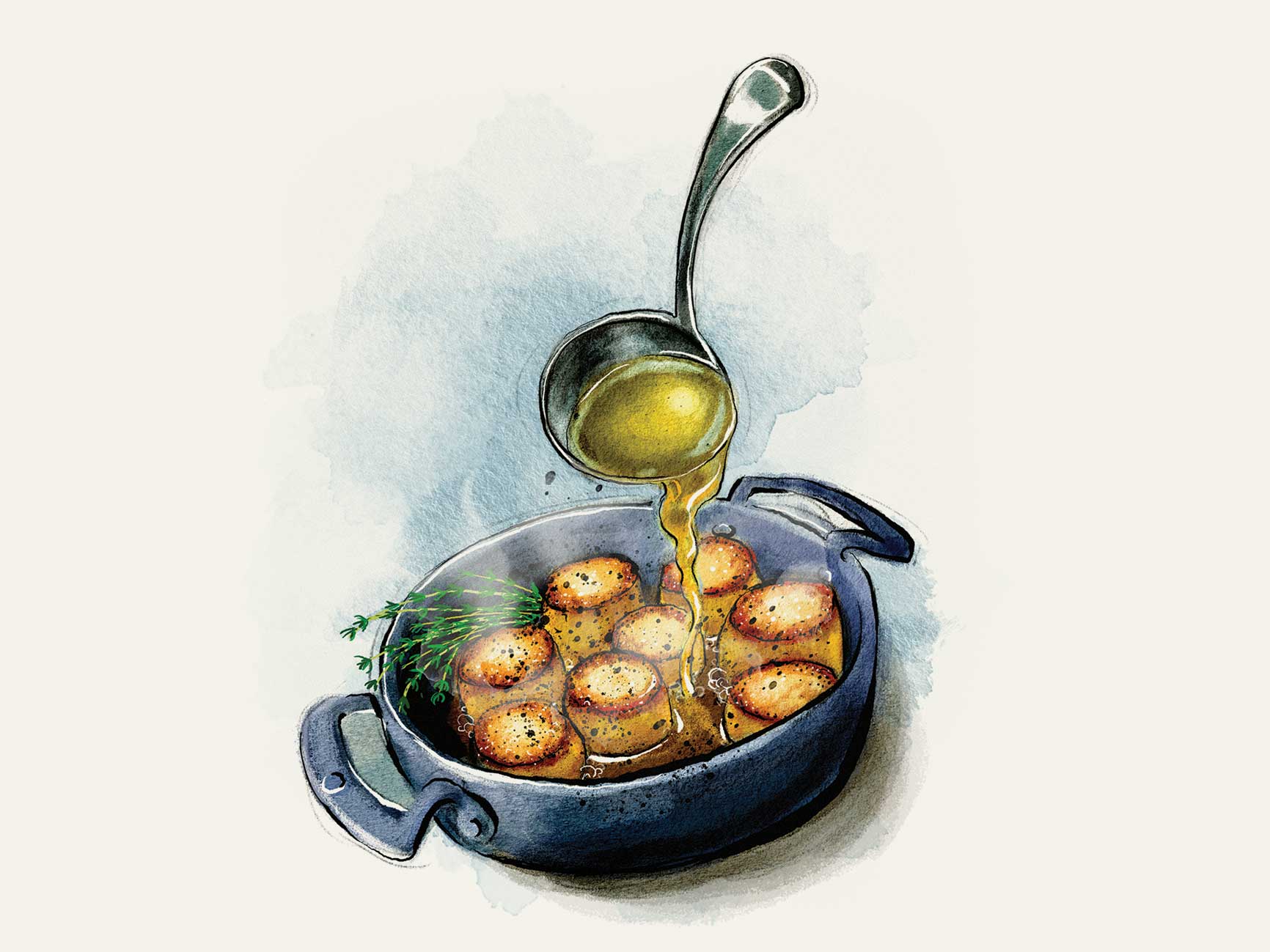
In 1999, a relatively unknown American chef wrote an essay in the New Yorker uncovering the secrets of restaurants. ‘Don’t Eat Before Reading This’ lifted the lid on both the underworld of professional kitchens and the mentality of chefs. In it, the writer meticulously took down ordering fish on a Monday (old), eating steak well done (for ‘philistines’), brunch as a concept (despised) and vegetarians in general (‘Enemies of everything that’s good and decent in the human spirit’).
The no-punches-pulled writing, which was both lyrical and graphic as well as funny and forthright, was the first published essay by Anthony Bourdain, who would go on to become one of the most influential and beloved personalities in the food world. In that essay, he also set out his stall as to the importance of butter to good restaurant food. ‘Butter,’ he wrote, ‘is in everything… It’s the first and last thing in almost every pan.’ It is the amount of butter, Bourdain would teach us, that made food taste so much better in restaurants than at home.
I think of this Bourdain maxim whenever I’m cooking potatoes. Any potatoes: mashed potatoes with as much butter as they can hold beaten into them; boiled baby potatoes anointed with pats of butter that slide down their sides; sautéed potatoes, golden brown and sizzling in a hot, buttery pan. But particularly fondant potatoes, which look ever-so-fancy and taste as if they have taken
hours to prepare.
Fondant potatoes are so called because the method of cooking results in a crisp exterior but a meltingly soft – fondant – middle.









Comments
Join the debate for just £1 a month
Be part of the conversation with other Spectator readers by getting your first three months for £3.
UNLOCK ACCESS Just £1 a monthAlready a subscriber? Log in